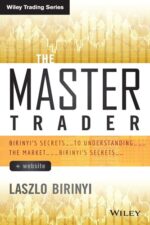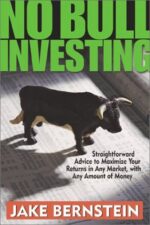The Psychology of Stock Market Timing
$12.64
The Psychology of Stock Market Timing: How Investors Can Sharpen Their Timing and Increase Their Chances of Making Money in Stocks By Buying or Selling at The Right Psychological Moment
In The Psychology of Stock Market Timing, Wyckoff reveals unsuspected psychological pitfalls in many common investment techniques, and points out the dangers in stop-orders, the scale-order plan, dollar cost averaging, fluid portfolios, and similar “formulas.” He shows why low-priced stocks are psychologically risky- and what special attitudes you must adopt in order to trade in them profitably. And the book also covers the psychology of selling short, feminine investment tendencies, off-season buying, and many other aspects of the market’s basic structure usually overlooked by other books on investment.
Peter wyckoff, a well-known Wall Street research analyst, has made a lifelong study of the psychological factors that influence financial decision-making and has found remarkable ways to identify and control the human elements in investment. He has found that the seemingly illogical behavior of stock prices is directly attributable to certain “psychological triggers” that set off a chain reaction when released.
For instance, he shows how abnormal weather conditions. war scares, elections, strikes, and similar phenomena cause significant fluctuations in the price of stocks -and he shows you how you can profit by these fluctuations by knowing in advance what the investing public will do. He reveals how mass opinion sways seasonal prices, and how you can enticipate these movements to your gain. And be demonstrates how to spot the psychological “turning point” in daily trading activities when prices reach their lowest ebb-the best time to pick up the issues you want.
You’ll see how the reactions of market professionals can be scientifically predicted and acted upon. You’ll discover how to “read between me lines” of charts and tapes, and how to apply what be cells the Confidence Factor to get the true significance of these facts and figures. And you’ll also find out how to overcome your own “emotional blind spots” and how to develop attitudes that will free you from following the crowd, and let you play the market in a coldly scientific, logical manner.
Contents:
- Topsy-Turvy Land, U.S.A.
- Where Being Illogical Is Wisdom
- The Dilettante’s Dilemma
- Touring the Market by Cycle
- It Was Ever Thus
- The Trader’s Trilogy
- The Insiders
- Blondes and Bonds
- The Mood 0f the Bear
- It’s the Season!
- Fashions in Formulas
- Caution: Chart Line Crossing
- Turns With a Tape Worm
- More Turns
- About Watching One’s Step
The Psychology of Stock Market Timing By Peter Wyckoff PDF
| Author(s) | |
|---|---|
| Format | |
| Pages | 229 |
| Publication Year | 1969 |
1 review for The Psychology of Stock Market Timing
Only logged in customers who have purchased this product may leave a review.










Dominick Pham (verified owner) –
This book is written as hundreds of individual paragraphs of stock market wisdom. Unfortunately, they fall flat because they are not timely or specific. When written in 1963, the book may have been useful to casual readers with a passing interest in the stock market. For a serious investor in 2012, however, the book is merely quaint. The quality and precision of information available daily on the internet overshadows such lame advice as “The overwhelming majority of tips never come true.” Other weak lessons include the sexist “Women should confine themselves to only the safest and soundest securities.” Or “One way to win in the market is to avoid doing what most others are doing.” Then there’s “Seemingly logical behavior is almost certain to be wrong behavior in the stock market.”
To be fair, the book has a certain charm in recalling the 1960s–when investing was still more old-school and clubby than it is now. There are references to interesting characters and events–such as Daniel Drew, Jay Gould, and the Erie War. Martino Published went to considerable effort to re-publish this 1963 book. As a period piece it has some interest. It does also deliver use useful psychology such as “Whenever hope becomes a chief factor in determining a market position, sell out promptly.”
For a serious investor, this book has limited value. As a beach read, it has some appeal.